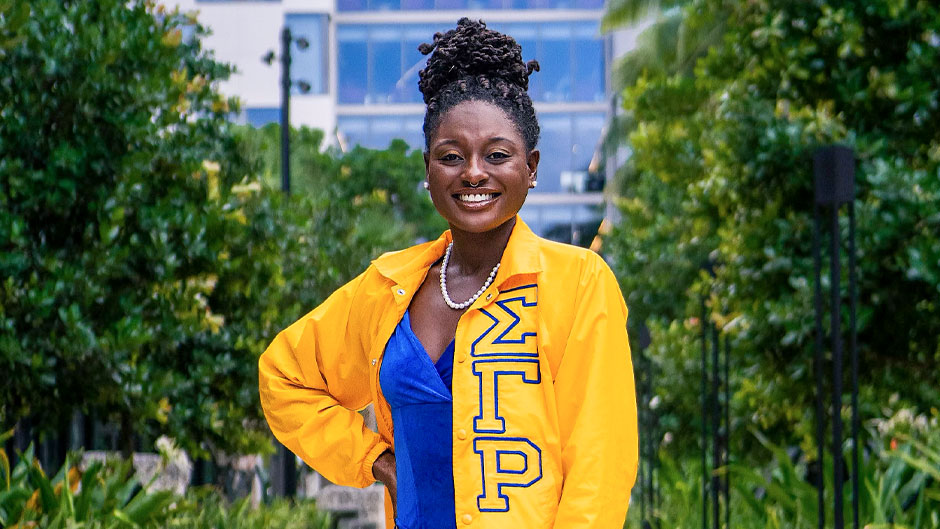Growing up in Titusville, Florida—just a few miles from the Kennedy Space Center—Eboni Arnold was naturally attracted to and astute in science and math. Everyone around her thought she should become a doctor, but she never imagined that for herself.
In her junior year of high school, Arnold’s impressive academic track record caught the attention of her anatomy and physiology teacher, who advised her to attend a seven-week residential summer research program at a local university.
After learning all about laboratory research, attending science lectures, and being mentored by professional researchers, Arnold said it was then that she knew the perfect career path for her—a scientist.
Arnold now looks forward to attending Harvard University in the fall, where she was accepted into the Ph.D. program in biological and biomedical sciences. The recent graduate earned her bachelor’s degree in neuroscience with minors in chemistry and microbiology and immunology from the University of Miami’s College of Arts and Sciences on Friday.
“A lot of people don’t even understand what research is and that it’s a career option,” said Arnold, who believes early exposure to science played a huge role in her affinity for the subject. “I’m such an independent thinker and I realized that research allows me to work individually while also making a difference.”
Arnold was originally a microbiology major but after her first year, she wanted more of a challenge. Once she made the switch, she said the neuroscience curriculum challenged her in new ways.
“There came a point in my academic career where I really enjoyed what I was learning,” said Arnold. “I felt so much more engaged in the classroom these past two years.”
While Arnold knows the University of Miami has fully prepared her to shine at Harvard University, she was initially intimidated by the doctoral program offer.
“When I went to visit their campus, I was one of three undergraduates there. Everyone around me was so much older. But at the same time, it tells me that I’m just as competitive as this pool of applicants,” said Arnold. “I applied to Harvard because that’s where I felt I deserved to be. It pushed me out my comfort zone, but I knew that the outcome would be worth it.”
As an undergraduate student, Arnold found her own way and sometimes even took the road less traveled to accomplish some of her significant goals. From being the minority in nearly every lab or summer research program where she has conducted research to being the only member initiated in fall 2020 into the Mu Nu chapter of Sigma Gamma Rho Sorority, Inc., a historically Black sorority, Arnold said she is privileged for every experience that has made her who she is today.
For the past two years, Arnold, was the president of her sorority. In her role, she hosted numerous community services events and collected hundreds of donations for Breast Cancer Awareness and a local women’s shelter, which all resulted in one of her proudest moments: winning five awards from the Association of Greek Letter Organization.
“Joining my sorority helped me to foster my independence and to learn how to be confident in my own abilities,” said Arnold. “Overall, I’ve been very fortunate to be intelligent, be at the right places at the right time, meet the right people, and get into programs that I could only have dreamed about being a part of,” said Arnold.
Already looking ahead, Arnold said once she graduates from Harvard, she hopes to open her own research institution and become affiliated with a historically Black college or university to show students that research is a career option.
“I want to provide motivation to Black students to show them that it’s a possibility,” she said. “Because at the end of the day, if you see someone who looks like you . . . then you know you can do it, too.”

